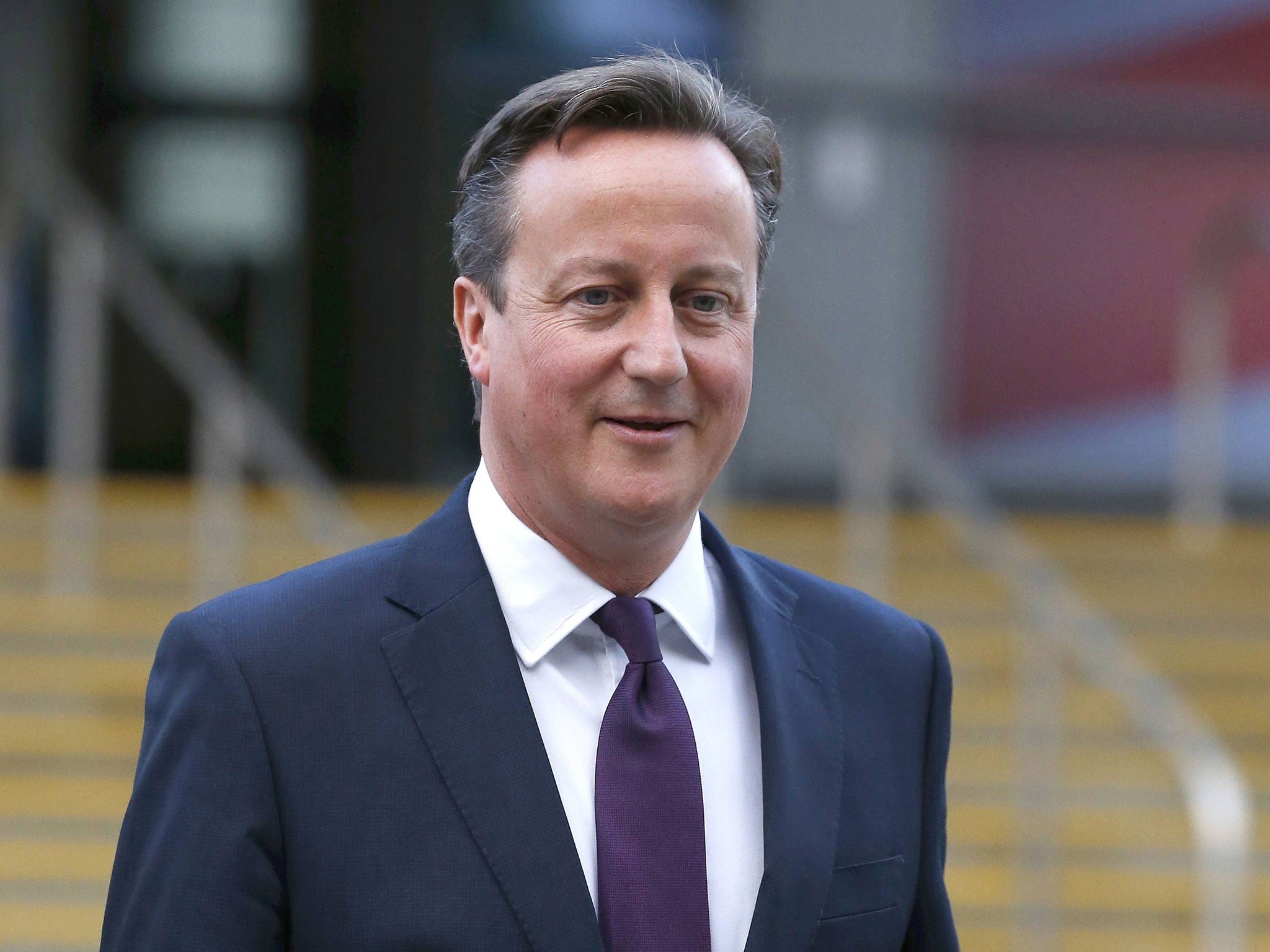David Cameron is still wrong about tax credit cuts, the Institute for Fiscal Studies says
The IFS says including other policies named by the PM still leaves people on low incomes worse off

David Cameron has been accused of using misleading examples to downplay the negative effects of cutting tax credits for the low paid.
The PM this morning said research by the respected Institute for Fiscal Studies showing big losses for low-income families had not included the positive effect of other relevant policies.
“If you look at the Institute for Fiscal Studies figures, they’re not taking into account the additional childcare that’s going to be there,” Mr Cameron argued on BBC Radio 4’s Today programme.
“They’re not taking into account, for instances, the cuts in social rents that we’re bringing in to help working people living in council and housing association homes.”
But the IFS, a respected economic research organisation, responded that including the extra policies outlined by Mr Cameron would make no difference to the fact that people would be left worse off by the cuts.
“One can easily pick examples of some families who are currently receiving tax credits who will be better off,” Carl Emmerson, the IFS’s deputy director told The Independent.
“But one can also pick examples of individuals who will lose quite considerably. On average our analysis shows that tax, tax credit and benefit reforms planned for this parliament will leave households worse off and that the new National Living Wage will only provide partial compensation.”
The Institute had produced figures showing that the new National Living Wage would come “nowhere near” to compensating the low-paid for simultaneous cuts to tax credits.
The study shows the £12bn cuts would only be offset by a £4bn gain from the new National Living Wage, meaning overall less than a quarter of the money lost by low earners to cuts would be replaced.
Mr Emmerson confirmed that childcare and the social rent cut were not taken into account, but pointed out that they would not make a difference to the overall result if they included.
He noted that the childcare benefit was worth £700m a year compared to an £8bn shortfall from the combined minimum wage and tax credit cut policy.
“In total by 2020-21 there are £12bn of cuts to benefits and tax credits and, based on the OBR's numbers, the increase in the National Living Wage will boost gross wages by £4bn,” he said.
“The fact that we don't include the extra childcare spending - estimated at about £700m - doesn't change the overall story that, on average, the NLW is not providing full compensation for the tax and benefit reforms that are coming.”
He said the social rent cut had effects of a similar magnitude and did not change the overall picture.
George Osborne insisted that the low paid would be better off if their tax credits were cut because they would benefit from the economic security of a lower spending deficit.
“That tax credit bill would go up and up and up, the country couldn’t afford it, people’s economic security would be undermined, and the people who would suffer would be the very lowest paid in our country – they would be the people who would ultimately lose their work,” he told the same programme.
David Cameron on Sunday also ruled out any changes to the tax credits cuts, telling the BBC that his plans were “right” and would leave people better off.
Mr Cameron effectively ruled out cutting the benefit before the election, telling a voters Question time that he “rejected” proposals to cut tax credits and did not want to do so.
The cuts are part of £12bn cuts to the social security budget that the Government is to make – specifics of which it refused to announce before the election.
The Conservatives are currently holding their annual party conference in Manchester. It continues until Wednesday.
Join our commenting forum
Join thought-provoking conversations, follow other Independent readers and see their replies
Comments
Bookmark popover
Removed from bookmarks